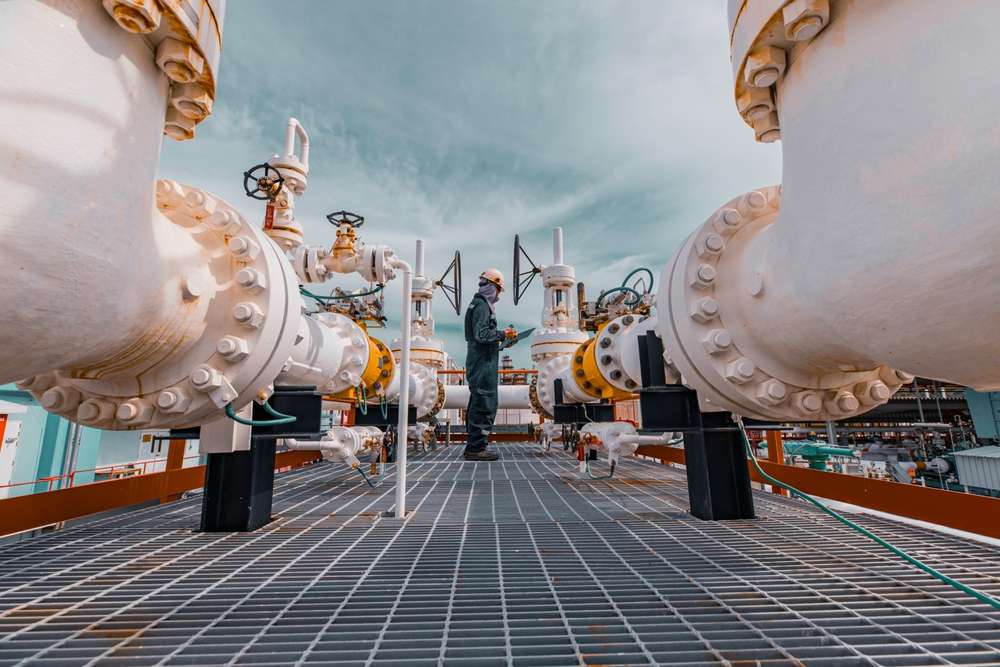Offshore Jobs: Exploring Opportunities in the Oil and Gas Industry
The allure of offshore jobs has long captivated those seeking adventure, high earnings, and unique career experiences. These positions, often associated with the oil and gas industry, offer a blend of challenging work environments and rewarding opportunities. From remote oil rigs to specialized vessels, offshore careers present a diverse range of options for skilled professionals and newcomers alike.

Typical offshore positions include drilling engineers, geologists, marine technicians, and various support roles such as cooks, medics, and safety officers. The work often involves rotating schedules, with employees spending weeks or months at sea followed by extended periods of leave on land. This cycle of intense work periods followed by substantial time off is one of the defining characteristics of offshore employment.
What qualifications are needed for offshore careers?
The qualifications required for offshore jobs vary widely depending on the specific role and level of responsibility. However, there are some common prerequisites that apply to many positions in the industry:
-
Safety certifications: Most offshore jobs require basic safety training, such as the Offshore Petroleum Industry Training Organization (OPITO) approved Basic Offshore Safety Induction and Emergency Training (BOSIET).
-
Physical fitness: The demanding nature of offshore work often requires employees to pass rigorous medical examinations and fitness tests.
-
Technical skills: Many roles, particularly those in engineering and operations, require specific technical qualifications and experience related to the oil and gas industry.
-
Soft skills: Given the close-quarters living and working conditions, strong interpersonal skills, adaptability, and the ability to work well in a team are essential.
-
Language proficiency: English is often the common language on international rigs, so a good command of English is typically necessary.
What are the advantages of pursuing an offshore job?
Offshore jobs offer several attractive benefits that draw many professionals to this unique career path:
-
High earning potential: Offshore workers often earn significantly more than their onshore counterparts due to the demanding nature of the work and the extended time spent away from home.
-
Extended time off: The typical rotation schedule allows for long periods of leave, which can be used for personal pursuits or family time.
-
Career advancement: The offshore industry often provides opportunities for rapid career progression, especially for those willing to take on additional responsibilities and continue their education.
-
Travel opportunities: Many offshore jobs involve working in different parts of the world, offering the chance to experience diverse cultures and environments.
-
Skill development: The challenging nature of offshore work promotes the development of a wide range of technical and soft skills that are valuable across multiple industries.
What are the challenges of working in offshore oil and gas jobs?
While offshore careers can be rewarding, they also come with unique challenges that potential candidates should consider:
-
Extended periods away from home: The rotation schedules, while offering extended time off, also mean long stretches away from family and friends.
-
Harsh working conditions: Offshore environments can be physically demanding, with exposure to extreme weather conditions and the constant motion of the sea.
-
Limited personal space: Living quarters on offshore installations are often cramped, with shared facilities and little privacy.
-
Safety risks: Despite stringent safety measures, offshore work inherently carries higher risks than many onshore occupations.
-
Isolation: The remote nature of offshore work can lead to feelings of isolation and can be mentally challenging for some individuals.
How does the offshore job market look in the current industry climate?
The offshore job market is closely tied to the overall health of the oil and gas industry, which can be volatile and subject to global economic factors. In recent years, the industry has faced challenges due to fluctuating oil prices and increasing focus on renewable energy sources. However, as global energy demand continues to grow, offshore oil and gas production remains a significant part of the energy mix.
The current job market shows a mix of trends:
-
Technological advancements: The industry is increasingly adopting automation and digital technologies, creating new roles while potentially reducing others.
-
Skill shortages: There is a growing demand for specialized skills, particularly in areas such as subsea engineering and digital technologies.
-
Sustainability focus: As the industry faces pressure to reduce its environmental impact, new roles are emerging in areas such as carbon capture and storage.
-
Diversification: Many offshore workers are finding their skills transferable to emerging offshore renewable energy sectors, such as wind farms.
What are some entry-level positions for those new to offshore work?
For those looking to start a career in the offshore industry, several entry-level positions can provide a foot in the door:
-
Roustabout: This general laborer position involves various manual tasks on the rig and is often a starting point for many offshore careers.
-
Catering crew: Positions in the catering department, such as stewards or galley hands, offer an opportunity to experience offshore life while providing essential support services.
-
Trainee technician: Some companies offer apprenticeship or trainee programs for various technical roles, allowing individuals to gain experience and qualifications while working.
-
Safety observer: Entry-level safety roles can provide valuable experience and insight into the critical aspects of offshore operations.
-
Deck crew: On offshore vessels, positions such as ordinary seaman can serve as a starting point for a maritime career in the oil and gas industry.
The offshore oil and gas industry continues to offer unique and rewarding career opportunities for those willing to embrace its challenges. While the sector faces ongoing changes and pressures, it remains a vital part of the global energy landscape, providing diverse roles for skilled professionals and newcomers alike. As with any career choice, careful consideration of personal goals, lifestyle preferences, and long-term industry trends is essential when contemplating a move into offshore work.






